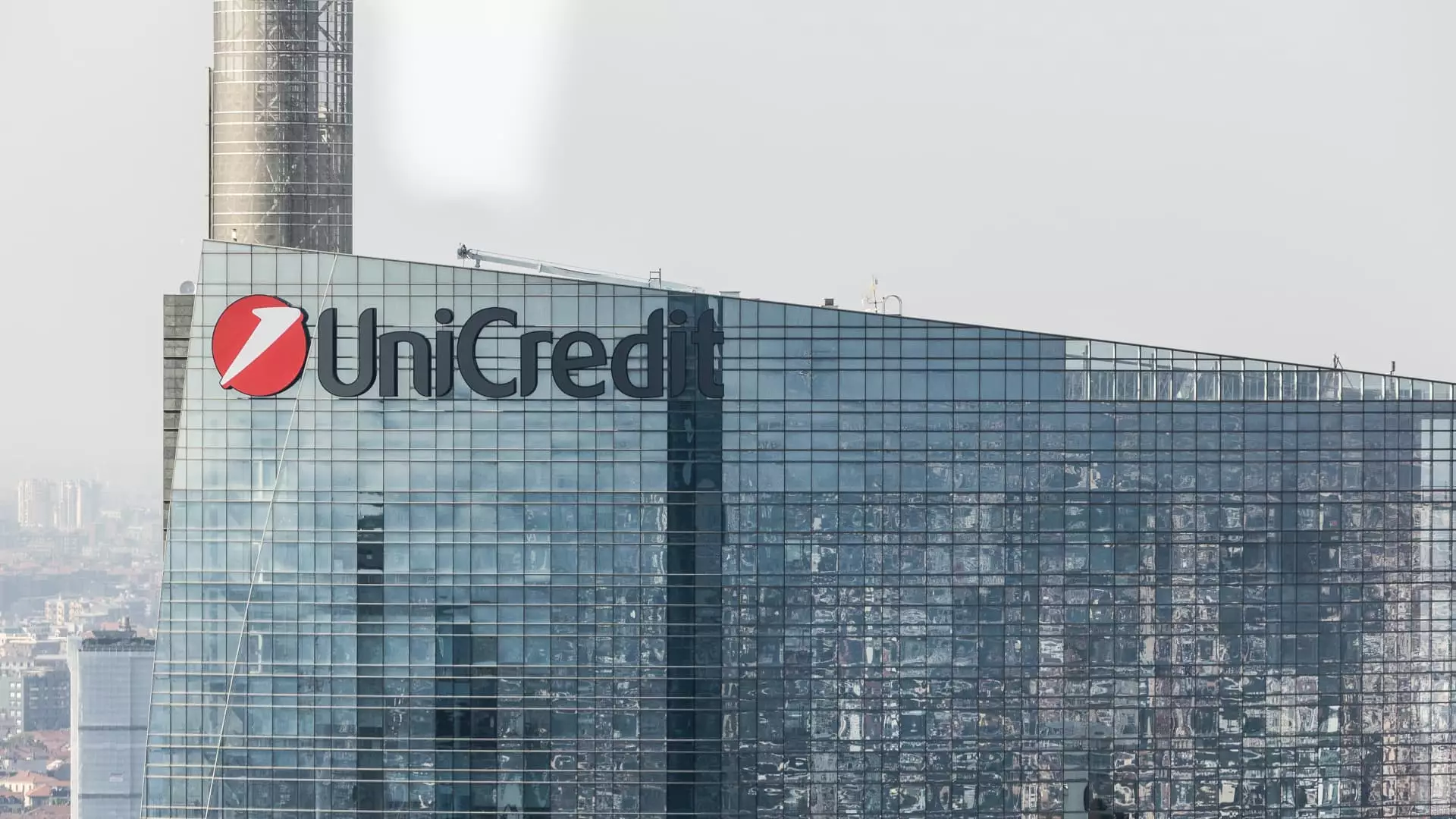In a bold move that signals its expanding ambitions in Germany, Italy’s UniCredit has announced an increase in its stake in Commerzbank, raising it to 28% from a previous holding of 21%. This surge in ownership is split between a direct stake of 9.5% and an impressive 18.5% acquired through derivatives, marking a significant strategic shift for the Italian banking giant. CEO Andrea Orcel has not only set sights on Commerzbank but is also vying for a stake in Italian lender Banco BPM, illustrating a dual strategy aimed at reinforcing UniCredit’s market position both within Germany and Italy.
UniCredit’s progressive acquisition of shares in Commerzbank is not merely a financial maneuver; it reflects a deep-seated belief in unlocking potential value within the German bank. In their official statement, UniCredit expressed a commitment to enhancing Germany’s economic landscape through a robust banking sector. However, the declaration that this stake remains “solely an investment” leaves room for ambiguity regarding future intentions. As the European Central Bank evaluates UniCredit’s request to increase its stake to nearly 30%, it remains critical to consider how this aligns with broader economic goals, especially amidst ongoing challenges within the German governmental structure.
Despite UniCredit’s ambitions, there are multiple hurdles to overcome, particularly in the political arena. The German government, which still holds a 12% stake in Commerzbank, has historically been reticent about foreign takeovers in key financial institutions. Chancellor Olaf Scholz’s administration has faced significant instability, complicating the potential for UniCredit’s expansion in Germany. The ruling coalition’s recent struggles, including a no-confidence vote, may very well influence the acceptance or rejection of Orcel’s overtures to Commerzbank.
Moreover, the reaction from Commerzbank itself has been cautious. While acknowledging UniCredit’s announcement, it has chosen not to engage deeply in the discourse surrounding a prospective merger, pointing instead to its strategy review slated for February 13. This hints at a critical juncture for Commerzbank, which may shape its own stakeholder relationships significantly in the near future.
The market has responded positively to news of UniCredit’s increased stake, with a modest rise in its share prices reflecting investor optimism. This positivity, paired with a 3.1% increase in Commerzbank stock, suggests that the financial community is keenly watching how these developments will unfold. Analysts have highlighted the potential synergies in capital markets and advisory services that could arise from a merger between the two entities, which may bolster competition and operational efficiencies in a market increasingly swayed by digital transformation.
While UniCredit’s intentions appear strategically calculated, the intertwining of financial aspirations and political complexities presents a multifaceted narrative. This situation will continue to evolve, and the path forward remains cautious yet ripe with potential for disruptive change in the banking landscape across Europe. As the German government reels from political strife, how it navigates its stake in Commerzbank may ultimately dictate the success of UniCredit’s ambitions.

